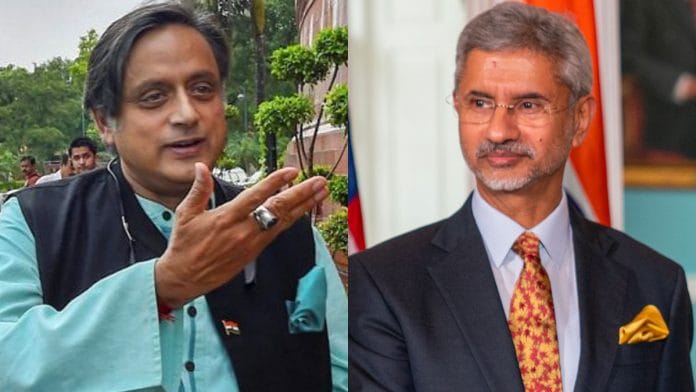New Delhi: Air pollution, public education, state capacity, agriculture, geopolitics, technology and law. These are just some of the topics that will be discussed at the Centre for Policy Research’s annual public forum, titled ‘CPR Dialogues 2020: Policy Perspectives for 21st Century India’. The forum will be held on 2 and 3 March at New Delhi’s India Habitat Centre.
CPR says the forum aims to provide a platform for “locating debates and challenges in India within a global perspective”, to give an opportunity to policymakers, practitioners and academicians to learn from each other, and to “provide a window to the India of the future”.
Notable speakers at the event will include Minister of External Affairs S. Jaishankar, Congress MP Shashi Tharoor, NITI Aayog member Prof. Ramesh Chand, economist Lant Pritchett, former foreign secretary Shyam Sharan, and political scientist Mukulika Banerjee.
Also read: Three ways by which Delhi’s Kejriwal govt can fulfil its promise to curb air pollution
Questions to be discussed
Some of the larger questions to be discussed during CPR Dialogues are:
– As norms of engagement and the global order change, how should India define its geopolitical position?
– Can the Indian state deliver cutting edge public services to all its citizens and build 21st century public institutions?
– How can India create productive jobs while responding to challenges of technology, rapid urbanisation and global economic changes?
– How can India move towards a more inclusive and environmentally sound future while responding to its energy needs as a growing economy?
– How can citizen-state engagement create a more inclusive citizenship?
– What are the underlying dynamics and emerging trends in India’s politics, and how do these shape policymaking in the 21st century?
Also read: Land conflict rampant in India because Constitution has made sparse reference to it
Mission statement
The CPR is a research-driven policy think tank which strives to “catalyse” policy debates, promises effective policy implementation, and translates ideas into “meaningful” policy design. It is committed to “intellectual pluralism and an honest, open-minded, evidence-based engagement with the institutions, processes, and practises shaping 21st century India”.
Yamini Aiyar, president and chief executive of CPR, believes that the CPR Dialogues are “strictly non-partisan, fiercely independent”, and hope to be “a space where India’s academics, policymakers and civil society can engage in a discussion on the pressing public policy challenges India confronts today as it navigates the 21st century”.
Shyam Saran, former foreign secretary and senior fellow at CPR, added: “We are going to focus on what kind of changes to expect in the international and geopolitical landscape in the new decade. We have different kinds of challenges facing us — the interrelationships amongst the major powers are changing and how does India position itself in this changing landscape.”
Also read: Modi’s $5-trillion goal blocked not by lack of infrastructure but delayed regulatory reform
ThePrint.in is the digital partner for CPR Dialogues. Read this series of curtain-raiser articles ahead of the conference.






